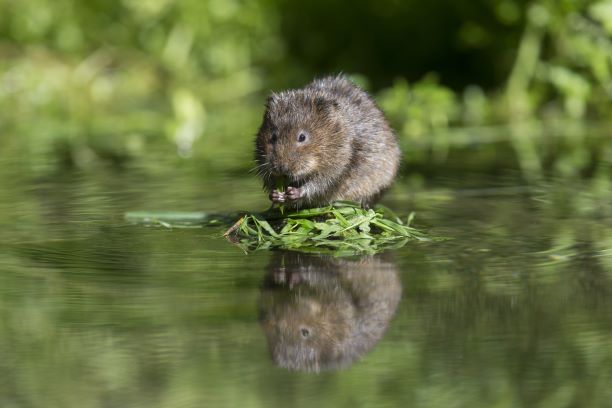Water Vole Surveys for Development
Why are Water Vole Surveys Required?
Schedule 5 of the Wildlife and Countryside Act 1981 provides legal protection for the water vole. Under this act, it is illegal to capture, intentionally injure, or kill a water vole. It is also against the law to disturb them in a place of shelter or protection, and to possess, transport, control, or sell water voles, whether they are dead or alive. The Natural Environment and Rural Communities (NERC) Act 2006 also provides protection for the water vole.
As water voles are a protected species, a water vole survey will be required for planning applications, or licence applications if it is possible that water voles could be present on the development site.
A water vole survey will determine whether there are water voles present on, or around the site. If the species is found on the development site, or nearby, water vole mitigation measures should be put in place.
More information on water vole surveys has been provided by Natural England and can be found on the Government’s website.

When to Survey for Water Voles
Water vole surveys should be undertaken by an ecologist with experience in this area. Surveys can be undertaken during breeding season, which is any time between April and October. Two surveys should be carried out – one between April and June, and another between July and September.
Where Are Water Voles Usually Found?
You may be able to find out whether water voles could be present in an area by obtaining historical records. However, the absence of records does not prove that there are no water voles in an area, and all habitats which are suitable for water voles should be surveyed.
As the name suggests, water vole habitats are likely to be found around water bodies, such as wetland, fresh water marshes, and river banks. Deep water courses and slow flowing water with diggable earth for burrowing, and vegetation are perfect habitats for water voles. If American Mink are found in the area, this is likely to suggest water voles could be absent, as Mink are known to predate the species.
How Are Water Voles Surveys Carried Out?
Carrying out a water vole survey involves searching for characteristic water vole field signs. An ecologist will examine the waterway and banks, up to at least two meters from the water, and will look for signs of water vole activity and record them on a detailed map.
If water voles are found to be present on a site, the impacts of the development should be assessed and a mitigation plan should be set in place.
Signs of Water Voles in an Area
Water voles will leave many signs to indicate their presence on a site. Water vole field signs are usually found along the edge of a water body and can include:
- Piles of droppings (latrines).
- Grazed lawns.
- Burrows and ground nests.
- Feeding stations.
- Footprints and runways in vegetation.
How Can Collington Winter Assist?
Collington Winter Environmental are an experienced team of Ecologists, providing a highly professional water vole surveys service to developers on all types of projects. Our Ecology Director, Olivia Collington, has worked with protected species across the UK, undertaking field surveys and writing scientific, readable reports for submission at planning.
We adopt a pragmatic approach to all sites, working with clients to find solutions and develop relationships. With current offices located in Greater Manchester and Dumfries, the team are well served to work nationwide. Over the years, we have built strong relationships with key stakeholders across the UK.
Please get in touch with our Ecology Director Olivia Collington (Olivia.collington@collingtonwinter.co.uk) for more information on protected species surveys (such as in relation to Bats, Great Crested Newts, or Badgers) and mitigation. We also provide ecological appraisal and assessment services.
Contact Us
Registered Address
23 Bark Street East, 1st Floor, Bolton, BL1 2BQ
Cambridge Office
Future Business Centre, Cambridge Campus, Kings Hedges Road, Cambridge, CB4 2HY
Leicester Office
Rutland House, 23-25 Friar Lane, Leicester, LE1 5QQ
Bristol Office
Newminster House, 27-29 Baldwin Street, Bristol, BS1 1LT
Telephone
Head Office: 01204 939 608
Dumfries Office: 01387 378208
